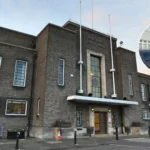Key Points
- Multiple planning applications submitted in Barking and Dagenham, including projects involving the demolition of garages and outbuildings.
- Proposals also cover construction of new dwellings, extensions, and habitable spaces on sites formerly occupied by garages.
- The London Borough of Barking and Dagenham requires at least six weeks’ notice prior to commencement of demolition works in accordance with the Building Act 1984.
- Demolition notices must comply with strict procedures, including communication with adjacent property owners and utility providers.
- Recent applications target residential neighbourhoods, such as Cavendish Gardens and Frizlands Lane, signalling ongoing redevelopment efforts.
- Applicants and the Council must adhere to regulations ensuring safety, mitigation of risks, and proper site restoration post-demolition.
- Building Control Division and Planning teams at the borough council oversee all demolition and redevelopment approvals.
- The news pieces referenced here contain details derived from council documents, statutory notices, and official online portals.
Garage demolitions are at the forefront of new planning applications submitted to the London Borough of Barking and Dagenham, as the Council processes a suite of proposals impacting residential neighbourhoods. These plans reflect the borough’s ongoing efforts to modernise local infrastructure, facilitate new housing, and regulate site safety throughout the development process, as detailed in various municipal documents and public registries.
- Key Points
- What Are the Latest Planning Applications Involving Garage Demolitions in Barking and Dagenham?
- Are There Other Notable Projects Targeting Outbuildings?
- What Steps Must Be Followed for Demolition in Barking and Dagenham?
- What Official Responsibilities Do Applicants and the Council Hold?
- What Impact Are These Projects Anticipated to Have on the Community?
- When and How Are Residents and Stakeholders Notified of Upcoming Demolitions?
- What Council Resources Are Available for Residents Affected by Demolition or Construction?
- Who Oversees Compliance and Site Management During the Demolition Process?
- What Penalties Exist for Breaching Demolition Protocol?
- Where Can Stakeholders Find More Information on Current Applications and Regulations?
What Are the Latest Planning Applications Involving Garage Demolitions in Barking and Dagenham?
As reported by the planning application repository at Landcycle, the London Borough of Barking and Dagenham has recently received several development proposals involving demolition of garages. For example, the application registered under reference 25/00575/FULL proposes the demolition of existing garages at 121 Cavendish Gardens, Barking (IG11 9DX), alongside a hip-to-gable roof extension and construction of a two-storey side extension to create a new three-bedroom, five-person dwelling. The scheme includes car parking, refuse storage, landscaping, and new fencing, illustrating how garage demolition often precedes broader site improvements and new-build activity.
Similarly, the council has processed additional applications such as 25/00553/HSE at 86 Gay Gardens, Dagenham, which involves converting a garage into a habitable room and further extensions.
Are There Other Notable Projects Targeting Outbuildings?
According to the planning schedule, the redevelopment trend also encompasses other outbuildings besides garages. Application 25/00537/HSE at 20 Frizlands Lane, Dagenham, details the proposed demolition of an existing outbuilding followed by the construction of a part two-storey and part single-storey side extension, underscoring the mix of demolition and new construction activities currently underway.
What Steps Must Be Followed for Demolition in Barking and Dagenham?
Building control in Barking and Dagenham is subject to robust statutory oversight. As explained in the council’s demolition notice guidance, any party intending to carry out demolition, whether partial or full, is required to issue formal written notice to the council under Section 80 of the Building Act 1984. This legal notice must be served at least six weeks prior to the start of any demolition activities.
Before demolition may commence, the Council will issue a statutory Section 81 notice specifying conditions that must be adhered to during the project, including remedies for possible damage to adjacent structures, removal of waste, and utility disconnections. The process is also aligned with requirements for consultation with neighbouring property owners, statutory undertakers (utility companies), the Fire Service, and the Health and Safety Executive if there is to be any burning of material on site.
What Official Responsibilities Do Applicants and the Council Hold?
As noted in the building control documentation produced by the local authority, the party carrying out demolition must also consult privately with occupiers of adjacent properties and notify the relevant gas and electricity boards to ensure public safety and site integrity. The Council itself is entitled to recover costs related to the supervision of demolition from the applicant, with a minimum fee of £100 for the issue of a demolition notice.
What Impact Are These Projects Anticipated to Have on the Community?
The proposed demolition and redevelopment of garages and associated outbuildings mark a broader strategy of densification and renewal within the borough. Not only do these projects create additional housing stock but also bring improved facilities and modern layouts to established residential zones. The planning applications, as catalogued by Landcycle, reflect a steady movement towards optimising land use, accommodating larger households, and refreshing local landscapes for current and new residents.
Furthermore, projects such as the demolition of former garages to enable the construction of access roads contribute to wider infrastructure improvements. An example is highlighted in public council planning archives, which reference the replacement of demolished garages with a new access road linking Highland Avenue to Bell Avenue.
When and How Are Residents and Stakeholders Notified of Upcoming Demolitions?
As per the Building Act 1984, following receipt of a demolition notice, the council is required to consult affected parties within the six-week period, striving to communicate decisions as swiftly as possible, typically between seven and fourteen days. All adjacent owners, statutory undertakers (such as water, gas, and electricity service providers), and relevant emergency and safety authorities must be informed before demolition operations begin.
What Council Resources Are Available for Residents Affected by Demolition or Construction?
The London Borough of Barking and Dagenham provides dedicated portals for planning, building control, and support, allowing residents to track live applications, submit responses, and access guidance documents. For those seeking to alter or demolish structures, step-by-step guidance outlines the approval process and regulatory considerations, aiming to minimise risk and disruption to surrounding communities.
Who Oversees Compliance and Site Management During the Demolition Process?
The local Building Control Division holds primary responsibility for ensuring demolition procedures follow legal requirements from inception to completion. As indicated in official council documentation, the division reviews notice submissions, stipulates conditions, supervises structural safety, and verifies site restoration before sign-off. Each notice contains explicit expectations for shoring adjacent buildings, weatherproofing, and managing utility shutdowns.
What Penalties Exist for Breaching Demolition Protocol?
The council has the authority, under the Building Act, to penalise unauthorised demolition activity. Initiating demolition without giving appropriate notice or disregarding imposed conditions constitutes an offence, potentially leading to fines and further enforcement action.
Where Can Stakeholders Find More Information on Current Applications and Regulations?
The council’s online planning application system enables residents to search for and review all current proposals, including full details, supporting documents, and associated comments. Applications such as those for Cavendish Gardens or Frizlands Lane can be searched using their unique reference numbers.


